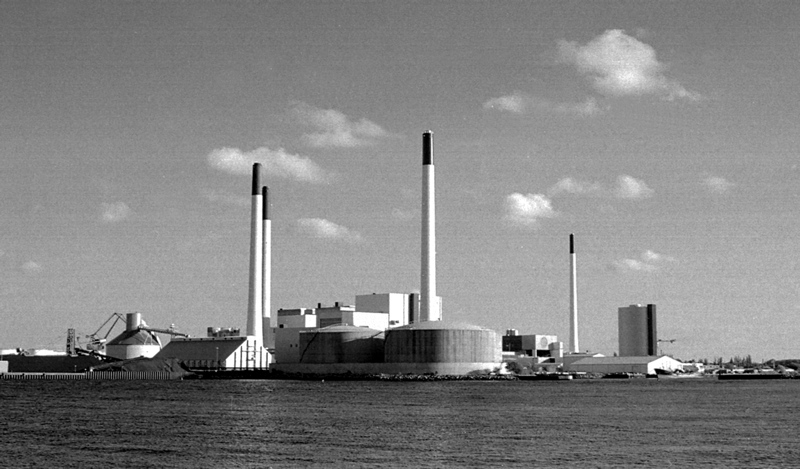 Dwight Brown’s mug shot. The leader of a metro Atlanta electric co-op was indicted last week on 31 counts of criminal wrongdoing, heightening concerns about planned coal-fired power plants that he’s played a key role in promoting.
Dwight Brown’s mug shot. The leader of a metro Atlanta electric co-op was indicted last week on 31 counts of criminal wrongdoing, heightening concerns about planned coal-fired power plants that he’s played a key role in promoting.
Dwight Brown, president and CEO of Cobb Electric Membership Corp., faces 16 counts of theft, three counts of racketeering, 10 counts of making false statements, and one count each of conspiracy to defraud the Cobb County government and the Cobb County school district, according to the Marietta Daily Journal. Brown’s attorney says his client is innocent.
The indictment charges Brown with using Cobb EMC’s revenues to fund operations of Cobb Energy, a private, for-profit spin-off of the EMC run by Brown. Brown allegedly did so without getting approval of the co-op’s members as required under the EMC’s by-laws. As the paper reports:
Without revenues from these various business dealings by Cobb Energy, funded by the co-op’s members, Cobb Energy could not have paid Brown millions of dollars in salary and compensations, dividends in preferred stock, and forgiven a $3 million loan Brown used to purchase the stock, according to the indictment.
The charges stem from a police raid of the homes of top Cobb EMC officials back in April 2009. The criminal investigation followed a civil lawsuit brought by EMC customers over the relationship between the co-op and Cobb Energy.
As the Southern Alliance for Clean Energy points out, Cobb EMC is the lead organizer of Power4Georgians, a consortium of electric co-ops planning to build coal-fired Plant Washington and Plant Ben Hill. The indictment supports SACE’s May 2009 analysis that the construction effort is compromised by mismanagement at Cobb EMC.
That analysis notes that Allied Energy Services — the company contracted by Power4Georgians to construct Plant Washington — is a fully-owned subsidiary of Brown’s Cobb Energy and has no experience building coal-fired power plants. SACE also reports that there’s no evidence of a competitive bidding process for the construction contract.
Following the 2009 police raid on Cobb EMC officials’ homes, a number of electric co-ops that were involved in the plant project dropped out. Besides Cobb, the other EMCs still invested in Power4Georgians are Snapping Shoals, Central Georgia, Washington, and Upson.
SACE says that the indictment underscores the need for more transparency around the power plant project. It called on Power4Georgians to disclose:
- The updated cost of Plant Washington, which hasn’t been revised since 2008 despite rapidly increasing costs for similar plants nationwide.
- Fresh data on the need for Plant Washington, which also hasn’t been revised since 2008 despite significant drops in electric usage in the last three years.
- How the $27 million that the Atlanta Journal-Constitution reports the EMC has already invested in Plant Washington has been spent.
- Why Power4Georgians wants to build a new coal plant when Oglethorpe Power Co., which currently provides most of the EMCs’ electricity, sees existing natural gas plants as the most cost-effective option.
“Investing in a coal plant is already a bad idea,” says Ulla Reeves of SACE. “Investing money where corruption has been alleged at the helm is a boondoggle and simply irresponsible.”
Brown’s indictment is not the only problem facing the Plant Washington project: Last month, the Georgia courts ruled that the state-issued air pollution permits for the facility failed to protect public health and the environment. The Georgia Environmental Protection Division is now faced with revamping the permits to limit health-damaging air pollution.


